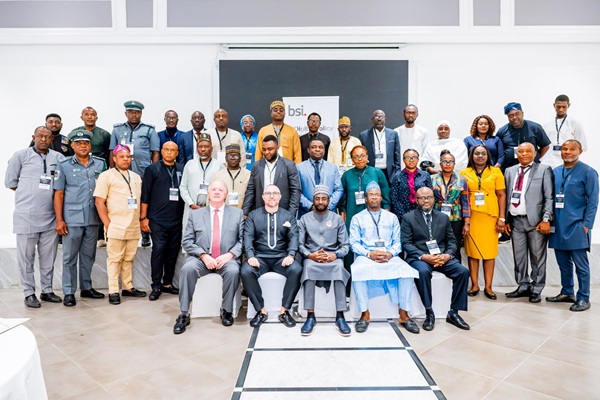
The director-general of the National Information Technology Development Agency (NITDA), Mallam Kashifu Abdullahi has emphasised the critical need to establish digital trust and implement international standards to support the country’s digitisation policies.
This declaration took place at a digital policy workshop organised by the British Standards Institution (BSI) in Abuja, where Abdullahi highlighted the pivotal role of NITDA in setting standards for digital transformation. He underscored the timeliness of the event, emphasising that it would deepen collaboration between NITDA, the Standards Organisation of Nigeria (SON) and the British Government, ultimately enhancing digital trust and adoption within Nigeria.
Reiterating the directive from President Bola Tinubu to expedite the diversification of Nigeria’s economy through technological innovation, Abdullahi mentioned that the Minister of Communications, Innovation & Digital Economy, Dr. Bosun Tijani had unveiled the ministry’s strategic plan, encompassing five pillars: knowledge, policy, infrastructure, innovation (entrepreneurship & capital) and trade.
Expanding on NITDA’s specific contributions, Inuwa explained the Agency’s Strategic Roadmap and Action Plan, consisting of eight strategic pillars. Emphasising the paramount importance of building digital trust, he stated that this endeavour aims to instil confidence in citizens using digital services safely and responsibly.
To achieve this goal, Abdullahi stressed the necessity of international collaboration, citing the Ministry’s target for NITDA to develop standards for the Nigerian digital public infrastructure. He emphasised the need for a scalable system with global market value, reinforcing the indigenous nature of solutions while aligning with international standards.
Addressing the challenges in Nigeria, particularly those related to e-commerce and online transactions, Abdullahi acknowledged the negative impact on trust over the years. However, he expressed optimism that the adoption of international standards would restore trust in transactions within Nigeria. Abdullahi envisioned a future with automated transactions and electronically generated invoices, emphasising the importance of partnerships with organisations like SON and international bodies such as BSI.
“We look forward to building a stronger and mutually productive relationship and being part of the global ecosystem,” concluded the DG.
The team lead at the British Standards Institution (BSI), Dr. Nigel Croft welcomed guests and commended the collaboration. He highlighted the subsequent training sessions for critical stakeholders in Nigeria’s standards sector, aiming to align with global best practices.
The workshop included key presentations, such as NITDA’s discussion on “Key Opportunities and Challenges in Nigeria’s Digitization Initiatives,” led by the acting director of the standard, guidelines and framework department at NITDA. Representatives from the British Standards Institution and the Standards Organisation of Nigeria also delivered presentations.
The event facilitated a round-table discussion where participants shared experiences regarding challenges to digitisation, opportunities for entering global value chains and transforming public services through international standards. Stakeholders expressed optimism that the conclusions and recommendations from the workshop would guide the next steps toward achieving anticipated gains.


